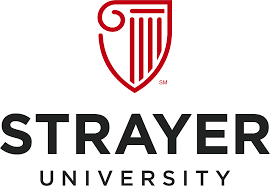The Top 5 MBA Programs in Delaware in 2024

Pursuing different MBA programs in Delaware is a personal and strategic decision for me. As I consider this educational endeavor, I envision a unique intersection of academic excellence and practical application in the state’s business landscape. Delaware’s reputation as a corporate hub aligns with my aspirations, and I am eager to immerse myself in a learning environment that integrates theoretical knowledge with real-world challenges.
I am sure that you are also excited to navigate this educational path, embracing the opportunities for growth and innovation that Delaware presents on both an academic and professional level.
Delaware’s Vast Business Successes (for such a tiny state!)
Known as the first state, Delaware is a sales tax-free state that houses a huge number of companies, including pharmaceuticals and industrial chemicals. This makes the state a popular destination for shopping. In terms of business, the state has one of the lowest taxes and provides favorable tax laws for businesses.
By land area, Delaware is considered the second smallest state, stretching 96 miles long and 39 miles wide. Despite this, the state is home to an estimated 1,018,396 people. It also houses some of the country’s most important businesses. This includes DuPont, the main driver of Delaware’s chemical manufacturing industry. The manufacturing industry also includes food products, plastic products, paper products, primary metals, and printed materials.
As of 2023, businesses in Delaware employ a total of 583,905 people, with top sectors in terms of total employment coming from Finance and Insurance, Real Estate and Rental Leasing, and Healthcare and Social Assistance.
Other factors that drive the economy include agricultural products such as broilers, soybeans, corn, and milk. Delaware’s fishing industry is also a huge contributor to the economy, with crabs and clams as its main products.

The state has a growing export tradition, having exported $4.7 billion in goods in the global markets in 2021 alone, with Canada, South Korea, and China as their main export partners. Of all the products in the state, agricultural exports have the most significant contribution, amounting to $326 million in 2020.
Beyond the business, commercial, and manufacturing industries, Delaware’s economy is also propelled by education and research. Delaware is home to eight colleges and industries, including the oldest higher learning institution in the state – the University of Delaware. Kiplinger’s Personal Finance magazine ranked the latter among the top 25 public colleges providing quality and affordable education. A total of 3,046 international students attended colleges and universities in the state in 2020, contributing $87 million to the economy.
Most of the higher learning institutions in Delaware offer graduate programs. An MBA, in particular, is available in some of its major colleges and universities. For students who want to pursue a Master of Business Administration degree, earning an MBA degree in Delaware can be an ideal choice. It has a diversified economy with a lot of room for growth. In addition to that, Delaware can provide custom financial assistance through the Delaware Strategic Fund, usually in the form of low-interest loans, grants, and other creative instruments.
Top MBA Programs in Delaware
MBA graduates will surely find a wealth of opportunities to practice their profession and climb the ladder of success. While most of the MBA programs on offer are only available on-campus, there are flexible options for those who need to fit their master’s degree into their busy lives. Let’s launch into it!
DSU College of Business – Delaware State University

Known as the State College for Colored Students in 1891, Delaware State University takes pride in its rich heritage as one of the nation’s first land-grant educational institutions.
Located in Dover, the university offers the best world to students as it provides a small-town feel where distractions are minimal but also makes it a convenient location if they need to access major cities such as Baltimore, Philadelphia, and Washington, DC.
At present, the university offers three associate degree programs, 48 undergraduate programs, 23 master’s programs, and six doctoral programs. One of the master’s programs on offer is the Master of Business Administration under the College of Business.
The College of Business offers one MBA program with concentration options:
Delaware State University’s College of Business has an AACSB-Association to Advance Collegiate Schools of Business accreditation.
Designed for working professionals and aspiring managers, the Master of Business Administration degree program imparts to students the importance of integrating and applying state-of-the-art techniques in organizational management.
The MBA program is designed with flexibility in mind to accommodate both full-time and part-time working professionals. The full-time accelerated program can be completed in as few as 12 months. Students may also choose the part-time study option, allowing them to complete the degree requirements within two years.
The faculty in the College of Business at Delaware State University are experts in their fields with terminal degrees in their respective disciplines. Students can expect to gain industry-specific knowledge through the core curriculum while also getting to choose diverse concentrations to help them pursue their professional goals and needs.
The Alfred Lerner College of Business & Economics – University of Delaware

Founded in 1923, the University of Delaware has developed a reputation as a research powerhouse following its inclusion in the list of academic institutions in terms of research expenditure, ranking 47th out of 626, as detailed by the Higher Education Research and Development (HERD) Survey of the National Science Foundation.
The University of Delaware is home to 10 schools and colleges, including the College of Agriculture & Natural Resources, the College of Education & Human Development, and the Lerner College of Business & Economics. It also houses the Division of Professional and Continuing Studies. This division provides educational opportunities for those who want to begin or complete their college degree and enhance their professional skills.
Every year, the UD PCS serves more than 16,000 students by offering credit courses and degrees along with professional development courses, certificate programs, and specialized conferences.
UD’s Alfred Lerner College of Business & Economics offers a fully online MBA program designed for working professionals.
The MBA program offers six specializations:
- Online MBA: Information Technology
- Online MBA: Business Analytics
- Online MBA: Healthcare Management
- Online MBA: International Business
- Online MBA: Strategic Leadership
- Online MBA: Finance
The University of Delaware MBA program is accredited by AACSB.
With its unique curriculum, the MBA degree at the University of Delaware offers a variety of cutting-edge course topics, including Corporate Strategy, Communication, Branding, Career Networking, Managing People, and Teams and Organizations. Students can expect to acquire a solid foundation in business management and essential business functions.
The university offers financial aid options through grants, federal or private loans, military benefits, and employer tuition reimbursement. It also features one of the most affordable tuition in the state.
The MBA program at the University of Delaware underlines quality. About 65% of its MBA graduates changed careers, gained a promotion, or received a raise while they were pursuing their MBA degree. The average salary of MBA graduates at UD amounts to $88,230.
College of Business – Wilmington University

Wilmington University is a private university in Wilmington Manor, Delaware. It was founded in 1968 and has since grown to become one of the major private academic institutions in Delaware. It currently serves over 20,000 students enrolled in both traditional/on-campus and online programs and also operates several locations across Delaware and in 2 other states.
Wilmington University’s main Business graduate degree offering is its standard MBA, offered by the College of Business, although it also offers the MBA as part of some of its programs in the health sciences, offered by the College of Health Professions & Natural Sciences.
Wilmington University’s range of MBA Offerings consists of the following:
- Master of Business Administration
- Master of Science – Nursing (MSN) + MBA or MSM in Health Care
- Doctor of Nursing Practice + MBA in Health Care
- BS in Health Sciences to MSM or MBA (Healthcare Administration Concentration, Accelerated Option)
Wilmington University places importance on affordability and accessibility, which is why these four tracks, along with most of its other programs, are also offered online or in a hybrid format, aside from the traditional/on-campus route.
Going back to the standard MBA program, it is explicitly designed to be a multifaceted program that develops students’ problem-solving skills, covering areas in analytics, decision-making, communication, and networking. Likewise, it also offered a wide range of concentration areas that students can choose from to fit their interests, needs, or goals.
There is a choice of 13 concentration areas that cover a wide range of fields: Accounting, Business Technology, Sustainability, Finance, Organizational Leadership, MIS, Homeland Security, and more. Its MBA concentration in Human Resource Management also adheres to industry standards, specifically those set by the Society for Human Resource Management (SHRM). Its concentration in Business Analytics, meanwhile, is also an F-1 STEM-eligible program.
Aside from the MBA, Wilmington University also offers the Mini MBA. It is a course optimized for Non-Business Degree Holders and is designed as a condensed overview of the key topic areas covered in typical MBA degrees.
Goldey-Beacom College

Goldey-Beacom College is a private university first founded in 1886. It is based in Pine Creek Valley, Delaware, and currently occupies a 24-acre suburban campus. Compared to the other major universities in Delaware on this list, Goldey-Beacom College is decidedly small, with a population of around 1,300 students, but it awards undergraduate and graduate degrees from a wide range of fields. It is also accredited by the Middle States Commission on Education and, for its business degrees, by the ACBSP and IACBE.
Despite its size as an institution, Goldey-Beacom College’s MBA program is no slouch and features a wide range of options and offerings. First off, its MBA program is offered in the following tracks:
The Comprehensive track is designed to accommodate bachelor’s degree holders coming from all manners of fields of study and is designed to build on students’ basic foundation of business knowledge that they may have learned within and outside the classroom.
Meanwhile, the Analytical Track features a quantitative approach to learning business concepts from various areas and covers the areas of statistics, analytics, forecasting, and project management. It is also STEM-Eligible and aligns with Department of Homeland Security standards.
On top of these two main tracks, Goldey-Beacom College’s MBA is offered with a choice of two majors, namely Finance and Taxation. Majors entail taking at least five courses in either of these business areas.
Further still, the MBA program also features several concentration areas, which entail taking at least three courses in a specific area. These concentration areas include Business Analytics, Entrepreneurial Studies, Financial Management, Health Care Management, Human Resource Management, Information Technology, International Business Management, Marketing Management, and Taxation.
Given its small size, Goldey-Beacom College’s MBA Program is also known for its close-knit and highly supportive learning environment, bolstered by its cadre of expert faculty and cutting-edge curriculum design.
Strayer University

Strayer University is a private, for-profit university that traces its roots back to Strayer’s Business College, established in 1892, and currently offers degrees almost entirely in an online format. While it is mainly headquartered in Washington, DC, it does operate in a physical location in Wilmington, Delaware, where students can take in-person classes for some courses.
Strayer University offers its MBA programs in two tracks, namely:
The Strayer University standard MBA consists of 10 courses, which each spanning 11 weeks in length. Strayer University also offers a specialized Executive MBA through the Jack Welch Management Institute (JWMI), which it acquired back in 2011.
The Jack Welch MBA is also an all-online program, designed to distill the experience and business practices of renowned CEO Jack Welch, who is most known for leading General Electric. The Jack Welch MBA program can be earned in 18 months and is billed as having had a solid history of returns for its students in the form of career advancement.
Going back to the standard MBA, it is offered with a wide range of concentration areas, which include the following:
- Accounting
- Business Data
- Acquisition
- Finance
- Digital Entrepreneurship
- Health Services Administration
- Global Management
- IT Security Management
- Human Resource Management
- Marketing
- Management
- Project Management
- Professional Studies
- Sales
- Public Administration
Strayer University is Accreditation Council for Business Schools & Programs-approved. Together with the JWMI, students can access many tuition discounts, scholarships, and other financial aid options.
Frequently Asked Questions
Some of the MBA programs in Delaware are offered by small universities. Will this affect the quality of the degree program?
To use a well-worn phrase: It’s not always about the size. While it is true that the top universities and colleges in Delaware and the rest of the country are quite large, there is a very good case to be made for small universities. Smaller universities tend to have more close-knit learning communities, where faculty and students enjoy more genuine interaction and better attention. Concerning the realities of the MBA, this can be a very big advantage: close-knit environments tend to facilitate better partnerships and network-building, which are crucial to students’ careers once they earn their MBAs.
I am also considering taking MBA programs outside Delaware. Is this a viable option?
Delaware is decidedly small and is one of the top 10 smallest states in the country. While this limits the number of universities that can realistically exist within the state, it does lie in close proximity to a number of large cities and neighboring states that have major top universities themselves. Delaware also has a relatively robust and diverse transportation network, making travel to nearby out-of-state universities a potentially viable option.
What are potentially good concentration areas to look into for MBA Programs in Delaware?
Some of Delaware’s major in-state industries include agriculture and manufacturing, although this shouldn’t limit one’s choices of concentration. Taking the Mid-Atlantic region into account, which Delaware is part of, other industries in the area include tourism, finance, communications, and more. Delaware is also well-integrated with its neighbors, which makes launching careers out-of-state a viable option.
What does my career path look like after earning an MBA program in Delaware?
Since Delaware has a thriving economy that shows huge potential in terms of growth, graduate students pursuing an MBA degree in the state will find plenty of employment opportunities that will advance their careers and guarantee a successful future in the field. The state is home to many diverse industries that tremendously impact the economy. Students who successfully earn a graduate degree may pursue leadership positions in the field of business. They may also want to take their degree further and pursue a doctoral degree in business.
Are there financial aid options available in MBA programs in Delaware?
The short answer is yes. Many universities offering MBA programs in Delaware have available financial aid options. Usually, the financial assistance is in the form of federal or private loans, grants, scholarships, military benefits, and employer reimbursement programs. The availability of these financial aid options may vary from school to school.
Before you go, see the following:
- Best MBA in Analytics Management Programs
- Best Accredited Online MBA Degree Programs
- Best Online MBA in Non Profit Management